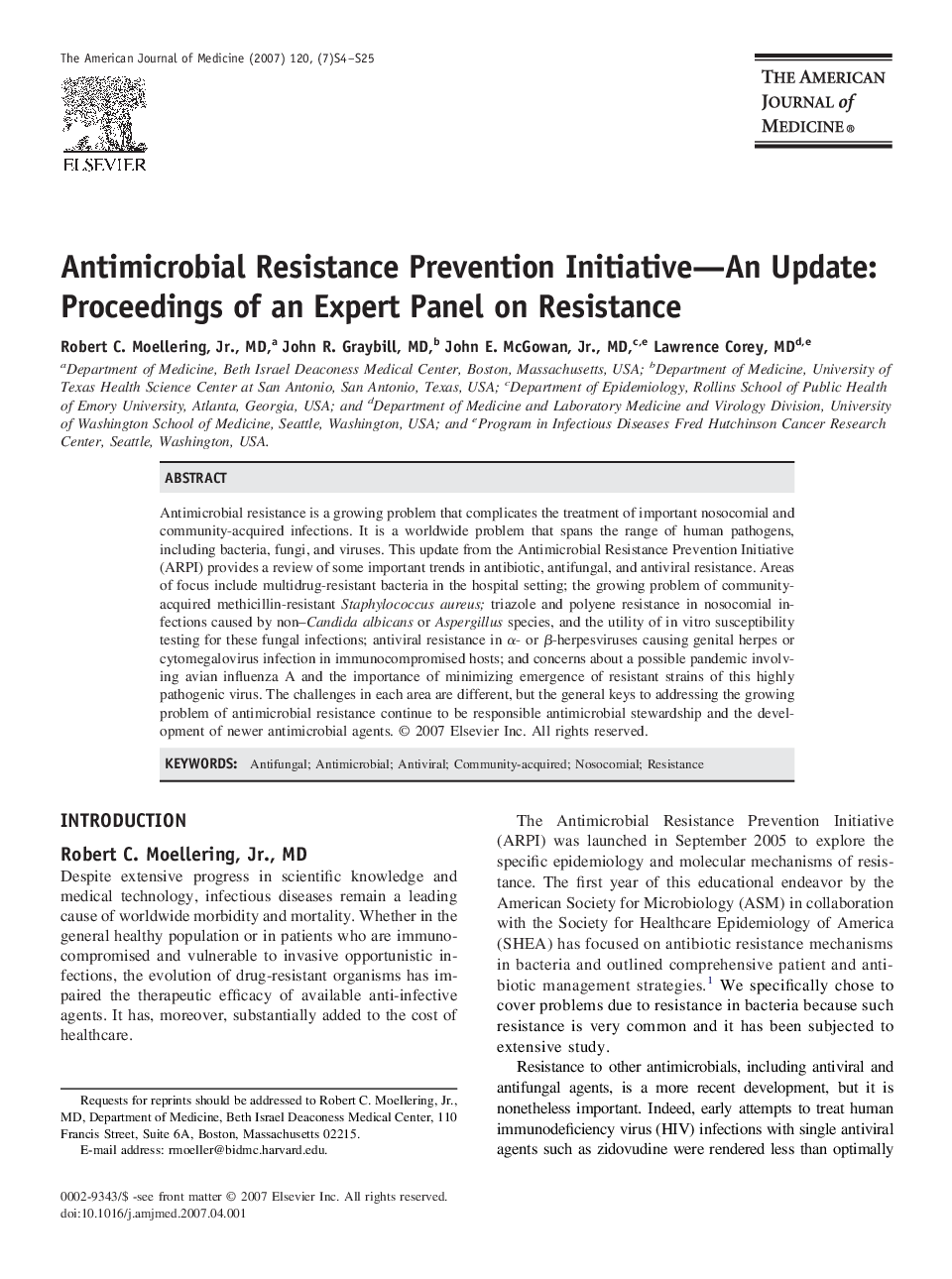| Article ID | Journal | Published Year | Pages | File Type |
|---|---|---|---|---|
| 2721179 | The American Journal of Medicine | 2007 | 22 Pages |
Abstract
Antimicrobial resistance is a growing problem that complicates the treatment of important nosocomial and community-acquired infections. It is a worldwide problem that spans the range of human pathogens, including bacteria, fungi, and viruses. This update from the Antimicrobial Resistance Prevention Initiative (ARPI) provides a review of some important trends in antibiotic, antifungal, and antiviral resistance. Areas of focus include multidrug-resistant bacteria in the hospital setting; the growing problem of community-acquired methicillin-resistant Staphylococcus aureus; triazole and polyene resistance in nosocomial infections caused by non-Candida albicans or Aspergillus species, and the utility of in vitro susceptibility testing for these fungal infections; antiviral resistance in α- or β-herpesviruses causing genital herpes or cytomegalovirus infection in immunocompromised hosts; and concerns about a possible pandemic involving avian influenza A and the importance of minimizing emergence of resistant strains of this highly pathogenic virus. The challenges in each area are different, but the general keys to addressing the growing problem of antimicrobial resistance continue to be responsible antimicrobial stewardship and the development of newer antimicrobial agents.
Related Topics
Health Sciences
Medicine and Dentistry
Medicine and Dentistry (General)
Authors
Robert C. MD, John R. MD, John E. MD, Lawrence MD,
